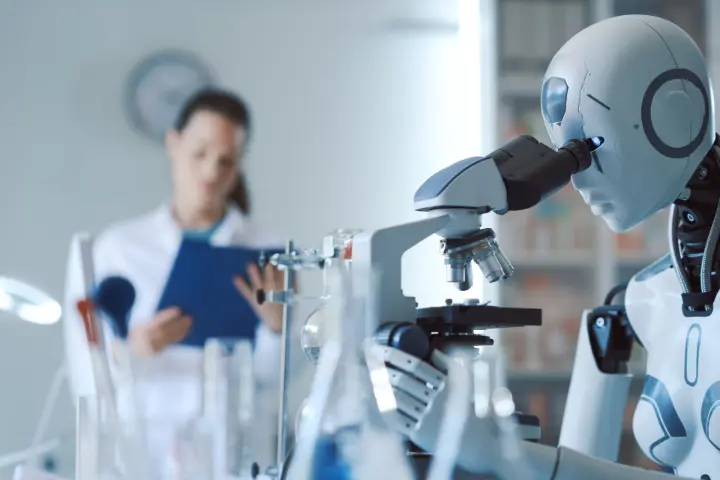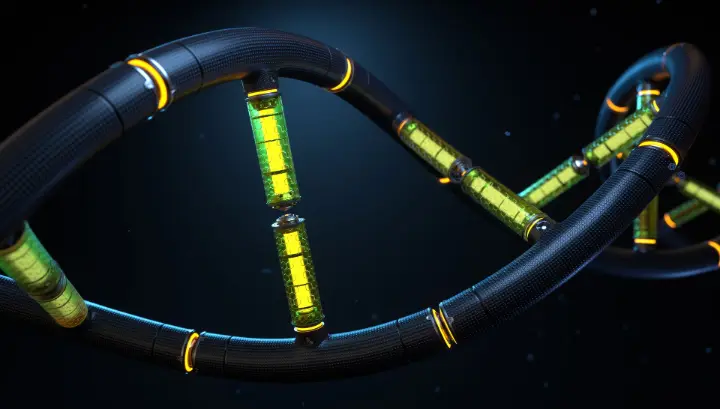Introduction
Biotechnology is one of the most dynamic fields in modern science, driving innovations that impact industries such as healthcare, agriculture, environmental sustainability, and industrial manufacturing. As we move into 2025, the biotech industry is witnessing unprecedented advancements that are transforming research, development, and applications worldwide. This article explores the latest breakthroughs and how they are shaping the future of biotechnology.
Cutting-Edge Innovations in Biotechnology
1. AI and Machine Learning in Biotechnology
Artificial intelligence (AI) and machine learning are revolutionizing the way biotechnology functions. Researchers are leveraging AI to analyze vast datasets, accelerate drug discovery, optimize genetic engineering, and improve diagnostics. AI-driven models help predict molecular interactions, reducing the time and cost needed for experimental research. Additionally, AI is enhancing image analysis in microscopy, helping scientists gain deeper insights into cellular and molecular structures.

AI-powered platforms are also streamlining laboratory workflows, automating tedious tasks, and enhancing efficiency in research labs. These technologies are increasingly used for clinical diagnostics, predictive modeling, and the development of next-generation bioinformatics tools. Companies are integrating AI with biotechnology to discover novel biomolecules and optimize protein engineering, leading to enhanced therapeutic developments.

2. Synthetic Biology and Genetic Engineering
Synthetic biology is unlocking new possibilities by enabling the creation of customized biological systems. Recent advancements include:
- The development of new bioengineered microorganisms for sustainable fuel production.
- The engineering of plants to enhance their nutritional value and resistance to environmental stress.
- The use of CRISPR-based technologies to precisely edit genes for improved agricultural and medical applications.

Moreover, synthetic biology is being employed in the manufacturing of bio-based materials that can replace petroleum-based products, contributing to sustainability efforts. Researchers are also developing bio-sensors that can detect harmful environmental contaminants in real time, improving public health and environmental safety.
3. Personalized and Precision Solutions
Advances in genomics are driving personalized approaches tailored to individual genetic profiles. By analyzing genetic information, researchers are making breakthroughs in:
- Customizing nutrition based on genetic markers.
- Developing precision agricultural techniques to optimize crop yield and sustainability.
- Improving targeted therapeutic interventions for various conditions.
Precision solutions extend beyond healthcare, influencing personalized skincare and fitness industries. Genetic analysis is increasingly being used to design wellness programs tailored to an individual's unique genetic makeup, optimizing exercise, diet, and overall well-being.

4. Biomanufacturing and Sustainable Industrial Practices
Biomanufacturing is transforming industries by providing bio-based alternatives to traditional chemical processes. Key developments include:
- The use of microorganisms to produce biodegradable plastics.
- Bioengineered enzymes replacing conventional industrial catalysts, leading to more sustainable production methods.
- The application of fermentation-based processes to develop sustainable alternatives to synthetic chemicals.
Industries are leveraging biomanufacturing to produce biofuels, fragrances, and even sustainable textiles. Advances in metabolic engineering are enabling scientists to modify microbes to create high-value biochemicals and bioactive compounds. This sector is expected to grow rapidly as industries shift towards more sustainable solutions.
5. Environmental Biotechnology and Bio-remediation
With rising concerns over pollution and climate impact, biotechnology is offering solutions for environmental sustainability:
- Bioengineered microorganisms are being used to break down industrial waste and oil spills.
- Algae-based technologies are contributing to carbon capture and sustainable biofuel production.
- Biofilters and genetically optimized plants are improving air and water purification.
Efforts are also being made to develop bio-inspired materials that can help reduce environmental waste. For example, fungi-based packaging materials are being developed as an alternative to plastic. Bioengineered coral reefs are being tested to restore marine ecosystems, demonstrating the vast potential of biotechnology in conservation efforts.
The Role of Global Collaboration in Advancing Biotechnology
International cooperation is key to fostering innovation in biotechnology. Research institutions, industry leaders, and governments are joining forces to accelerate progress. Organizations and platforms that support cross-border collaboration are essential in enabling knowledge exchange, investment, and joint development projects.
Many nations are investing in biotech hubs, creating ecosystems that support startup innovation and large-scale research initiatives. These hubs foster cross-disciplinary collaboration, connecting biotech firms with academia, government agencies, and investors to create new solutions with real-world applications.
The Future of Biotechnology
Looking ahead, biotechnology is set to further revolutionize multiple industries. With continuous advancements in AI integration, synthetic biology, sustainable practices, and precision solutions, we are entering a new era of technological progress. By embracing these innovations, biotechnology will continue to shape the future of science and industry for generations to come.
The integration of blockchain technology into biotech research is also gaining traction, providing more transparency and security in clinical trials and genetic data management. This ensures ethical standards are upheld and facilitates trust between researchers, participants, and regulatory bodies.
Another exciting frontier is space biotechnology, where research is being conducted on bioengineered food sources, microgravity-induced genetic changes, and sustainable biological systems for long-term space missions. This area of biotechnology could lead to innovations that benefit both space exploration and sustainability on Earth.
Conclusion
As biotechnology evolves, its impact on industries and everyday life will continue to expand. Innovations in AI-driven research, sustainable industrial practices, and precision solutions are pushing the boundaries of what is possible. By staying at the forefront of these advancements, industries and researchers can harness the power of biotechnology to create a more efficient and sustainable future.
With ongoing research, increased funding, and global collaboration, biotechnology is poised to continue its rapid expansion, improving lives and industries worldwide. The coming years will likely see even greater developments, making it an exciting time for those involved in this revolutionary field.